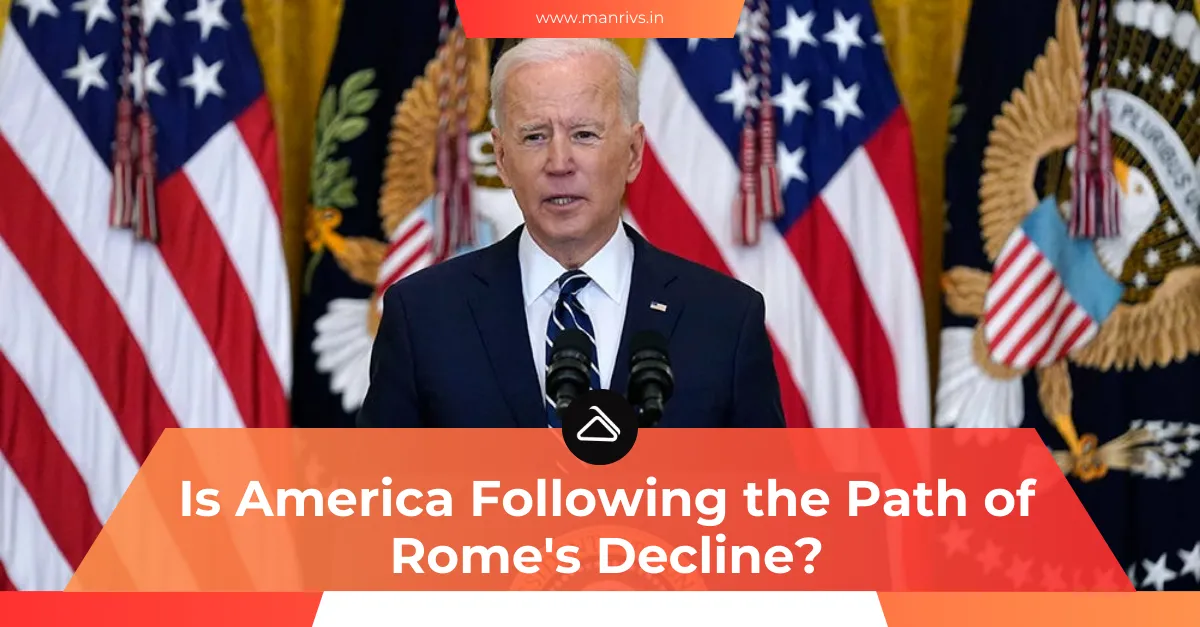In today’s rapidly changing world, many have drawn parallels between the United States and the decline of the Roman Empire. The comparisons are multifaceted, touching on issues such as economic stability, cultural diversity, and civic education. This article delves into these intricate resemblances and discusses whether the concerns raised by conservatives about America’s trajectory are valid or mere historical analogies.
The Inflation Paradox
One of the striking similarities between Rome and contemporary America is the issue of inflation. In both cases, there is a sense that the value of currency is diminishing. American conservatives often point to inflation as evidence that the nation’s economic stability is eroding, mirroring the situation in Rome.
Inflation can be attributed, in part, to the way economic policies are implemented. If these policies focus solely on printing more money without considering increased productivity, it can lead to a form of radical redistribution. The article explores how America’s growing national debt is impacting future generations and whether this trend aligns with Rome’s economic pitfalls.
The Challenge of Tribalism in America
Conservatives argue that tribalism is causing divisions in America, much like the tribal politics that plagued Rome during its decline. The inability to unite people under a common language, culture, and tradition is seen as a dangerous path.
The phenomenon of ‘wokeness,’ which has sparked controversy in contemporary America explores the idea that some efforts to combat racism and discrimination have been criticized for inadvertently perpetuating these issues. Drawing parallels with Rome’s decline, it questions whether such approaches are symptomatic of societal decay.
The Importance of Civic Education
Civic education is essential for the preservation of a nation’s values and principles. The unimportance of teaching citizens about the Constitution, historical events, and influential figures discusses how a lack of knowledge about the past can lead to a disconnect from one’s own history.
George Orwell’s quote, “He who controls the present can reinvent the past to make a new future,” is examined in the context of America’s changing historical narrative. A lack of historical understanding can allow the present generation to manipulate the past to suit their beliefs and agenda.
The Perspective of History
The importance of humility in evaluating past generations argues that passing judgment on historical figures without understanding the challenges they faced is unjust. It calls for a more nuanced perspective on history and the recognition that every generation faces its own unique challenges and moral dilemmas.
Conclusion
In summary, the parallels between America and the decline of the Roman Empire are thought-provoking. While it is essential to consider historical analogies, it is equally crucial to recognize that each era has its unique complexities. America’s future will be shaped by its ability to address contemporary issues while learning from the past.
FAQs
-
Is America truly following the same path as Rome’s decline?
America’s situation shares some similarities with Rome, but it’s important to understand the unique factors at play in both cases.
-
How does inflation affect a nation’s stability?
Inflation can erode the value of currency and impact economic stability, leading to concerns about the nation’s financial future.
-
What is the role of civic education in preserving a nation’s values?
Civic education plays a crucial role in ensuring that citizens understand their history, values, and the principles on which their nation was founded.
-
Why is historical perspective important?
Understanding the challenges and context of past generations allows for a more balanced and empathetic view of history.
-
How can America navigate its challenges while preserving its heritage?
Navigating challenges while preserving heritage requires a thoughtful approach that balances the demands of the present with an appreciation of the past.

